It's time to call 'cut' on biopics
They win all the awards and produce ‘career-defining’ roles for their stars. But do biographical movies hold great artistic merit, or are they simply decent impersonations boosted by Hollywood production values? Christopher Hooton explains his scepticism
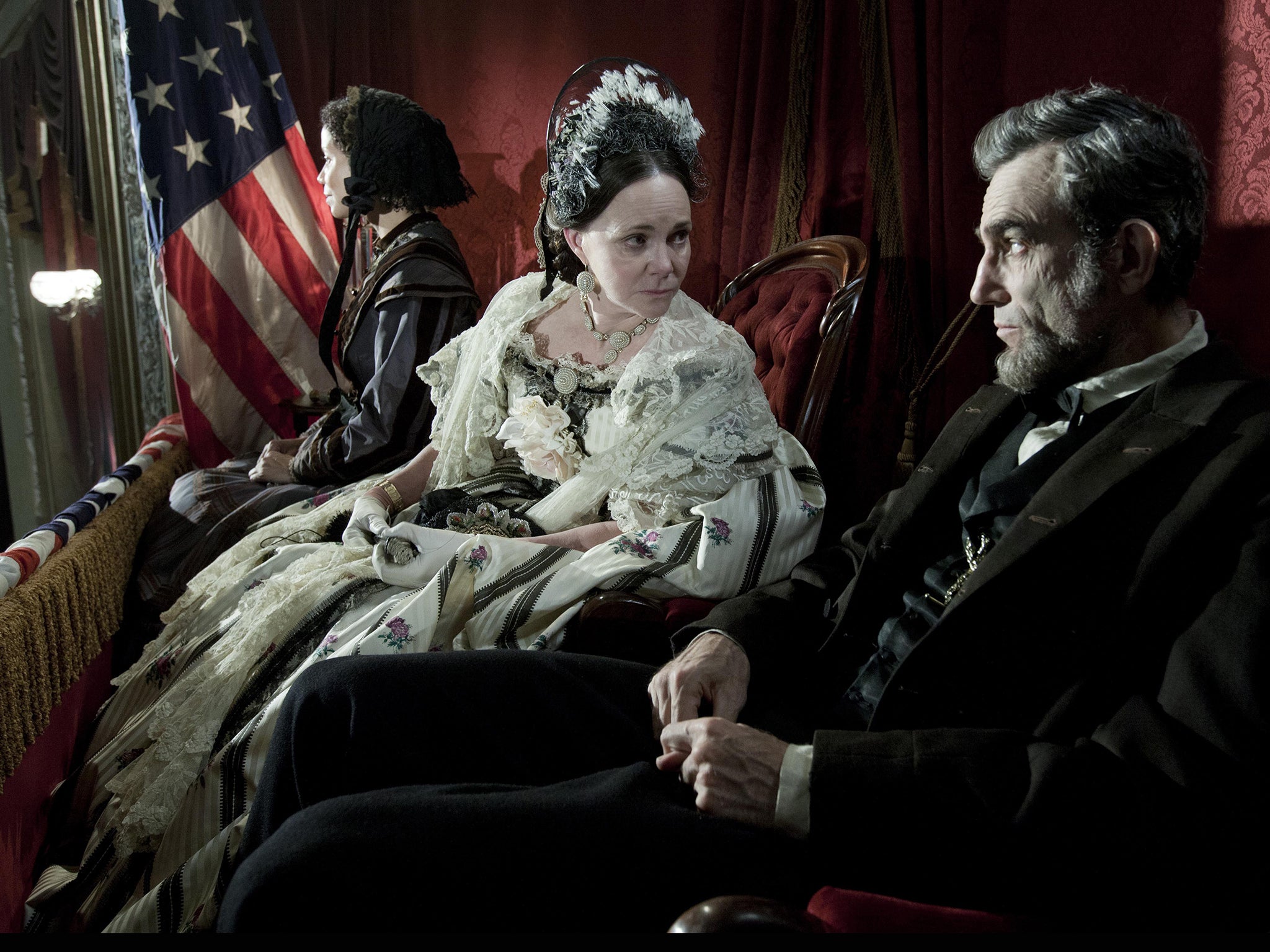
The first artistic impulse has always been to document. When early humans first put pointy rock to cave wall in the Aurignacian era more than 30,000 years ago, it was to draw animals they had seen and volcanic eruptions they had witnessed. When writing systems developed in ancient Mesoamerica several millennia later, they were employed to keep record of who had existed and when. The same goes much more recently with the advent of cinema. Among the first films to consist of more than one shot and tell a continuous narrative in the 1890s were a depiction of the life of Jesus Christ and a reproduction of battles from the Greco-Turkish war.
It makes sense that we would want to seize upon novel mediums of expression in order to create new accounts of the past and present. It is a way to make our little scratch in the universe; to say, “Hey, I was here once and important things happened.” What is less clear is why – and this seems to be unique to film, applying much less to other visual arts or to writing – we tend to herald acts of biography and historiography as crowning creative achievements.
The Independent on...
Lincoln
A verbose encounter of the wordiest kind ... The screenplay makes the issue of slavery its centrepiece, but sets it within such a long crossfire of backroom intrigues, political skulduggery and rhetorical bluster that actual drama looks ready to expire on the carpet.
Spielberg’s film will mean much to a nation that maintains a near-childlike reverence for the office of president, and it may well become one of their classroom standards. I don’t think it will be embraced quite so gratefully by the rest of the world. Anthony Quinn
Consider this: seven out of the last 10 Academy Awards for Best Actor have gone to successful portrayals of famous men. In 2008, it was Sean Penn for Harvey Milk in Milk. In 2012, it was Daniel Day-Lewis for Abraham Lincoln in Lincoln (the eponymous, emphatically succinct, tome-evoking titles of these biopics is no accident; they seek reverence from the outset). Between those two winners we had Colin Firth collecting the prize for his version of King George VI, while more recently we’ve seen Matthew McConaughey honoured for playing Aids activist Ron Woodroof, Eddie Redmayne for Stephen Hawking, Leonardo DiCaprio for frontiersman Hugh Glass and most recently Gary Oldman for Winston Churchill.
This is to say nothing of the representations of historical figures nominated but beaten to the prize (usually by other biopics) in the same decade: Richard Nixon, Nelson Mandela, Mark Zuckerberg, Alan Turing and Steve Jobs. A similar bias towards famous figures cannot be found in the Best Actress category, but that’s an incongruence owing more to historical patriarchy than an overwhelming skew towards fictional characters.
Whether the Oscars – currently embroiled in a crisis of self-identity – are a useful and honest appraisal of film endeavour is a debate for another day, but they do at least serve as a guide to what constitutes (in the view of the Academy) good or bad cinema at a given time.
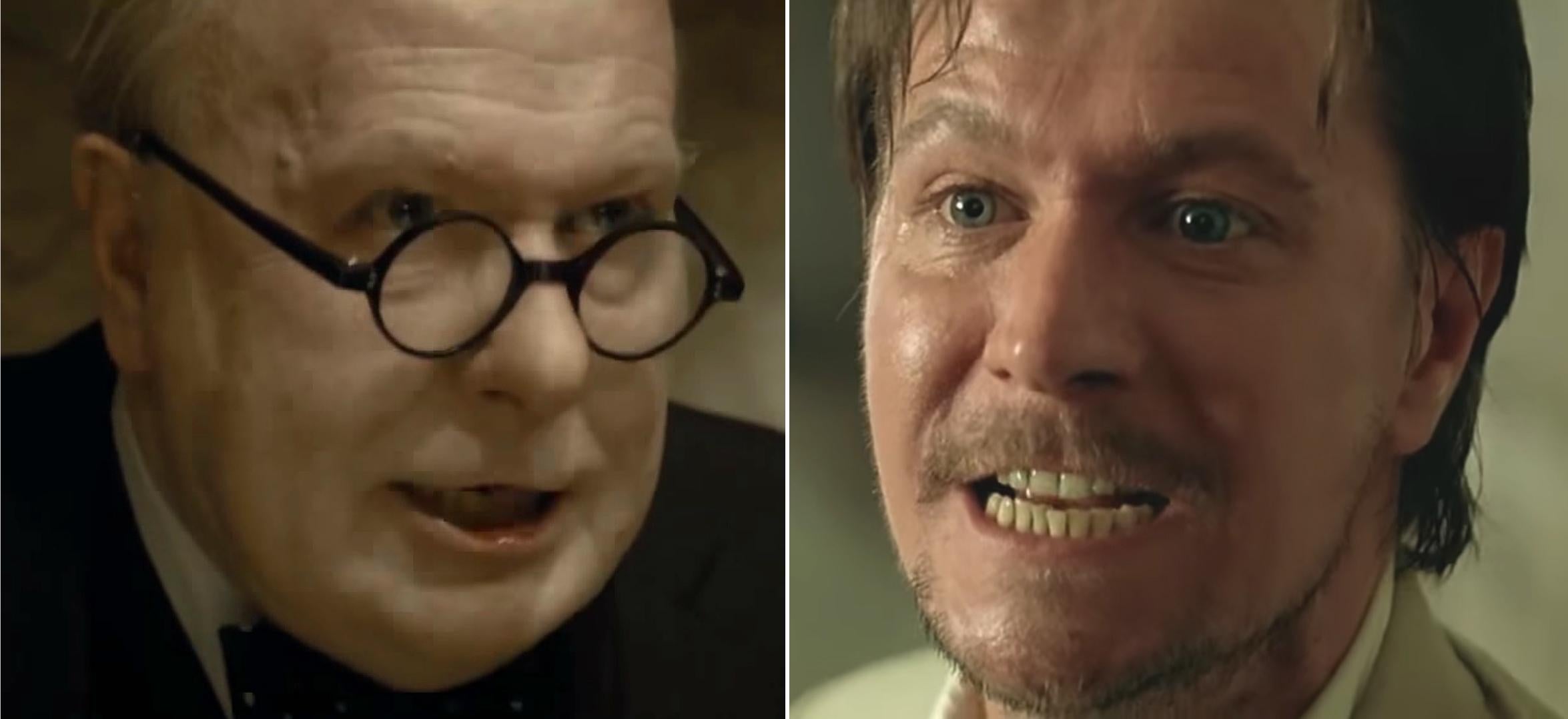
There’s a lot to unpack when it comes to the primacy of the biopic and of historical film more broadly – for our purposes we’ll consider them twinned. Let’s start with acting, which we’ve established shows considerable bias towards these kinds of movies in terms of plaudits.
What is good acting though? “If anyone tells you there are objective standards, they’re full of crap,” theatre director Marcus Geduld has argued. “It’s a matter of personal taste. There are trends. There are many people who loved Philip Seymour Hoffman’s acting. But if you don’t, you’re not wrong. At worst, you’re eccentric.”
The Independent on...
Darkest Hour
The film largely steers clear of jingoism. This isn’t an uncritical celebration of British bulldog spirit but a nuanced portrait of Churchill at a key point early in the war. At times, as played by Oldman, he’s like one of those forlorn characters in a Samuel Beckett play, an old man consumed with guilt and regret. Geoffrey Macnab
It may be true that trying to distil excellence in the profession down to certain criteria is a dead end, but there is perhaps a useful distinction we can make here, which is between good acting and an abundance of it, for it is the Most Acted roles rather than the Best Acted ones that accolades tend to go to lately. This may sound like a niche argument, but take anyone with even the mildest interest in cinema and they’ll tell you that Hugh Glass was probably not the part Leonardo DiCaprio should have been given an Oscar for. The Revenant even became the object of pop-culture ridicule, with DiCaprio’s grunting and howling and staggering from one existential threat to the next in Alejandro G Iñárritu’s exhausting survival movie being read as a blatant bid for the award.
I may have connected all the dots and been historically accurate, but did the spirit of the man take flight? That would be debatable
An intensity of acting – not to be confused with its pejorative cousin, overacting – certainly seems to be fashionable, and often comes hand-in-hand with the biopic. A verbal or physical tick, strange mannerism or peculiar intonation might be written off as gimmicky if attached to a purely fictional role, whereas its reproduction in the portrayal of a real-life person is frequently seen as evidence of the actor truly inhabiting the role. Reviews gushingly describe how they “lose themselves” in the character. It would be cynical to call the portrayal of well-known, real-life figures a mere impression or impersonation, but it is curious that the donning of prosthetics and nailing of a specific accent or demeanour or gait seems to do so much for an actor’s awards chances.
I put this to Gus Van Sant, the director of Milk, who most recently completed Don’t Worry, He Won’t Get Far on Foot – in which Joaquin Phoenix plays disabled cartoonist John Callahan – but who is probably best known for his fiction-based film, Good Will Hunting. “I don’t think that’s always true [that the Oscars has a biopic bias],” he says. “I think fictional roles oftentimes win, but maybe not in the last decade – sometimes the audience’s excitement is wrapped up in how accurate the performance is in reproducing the real thing.”
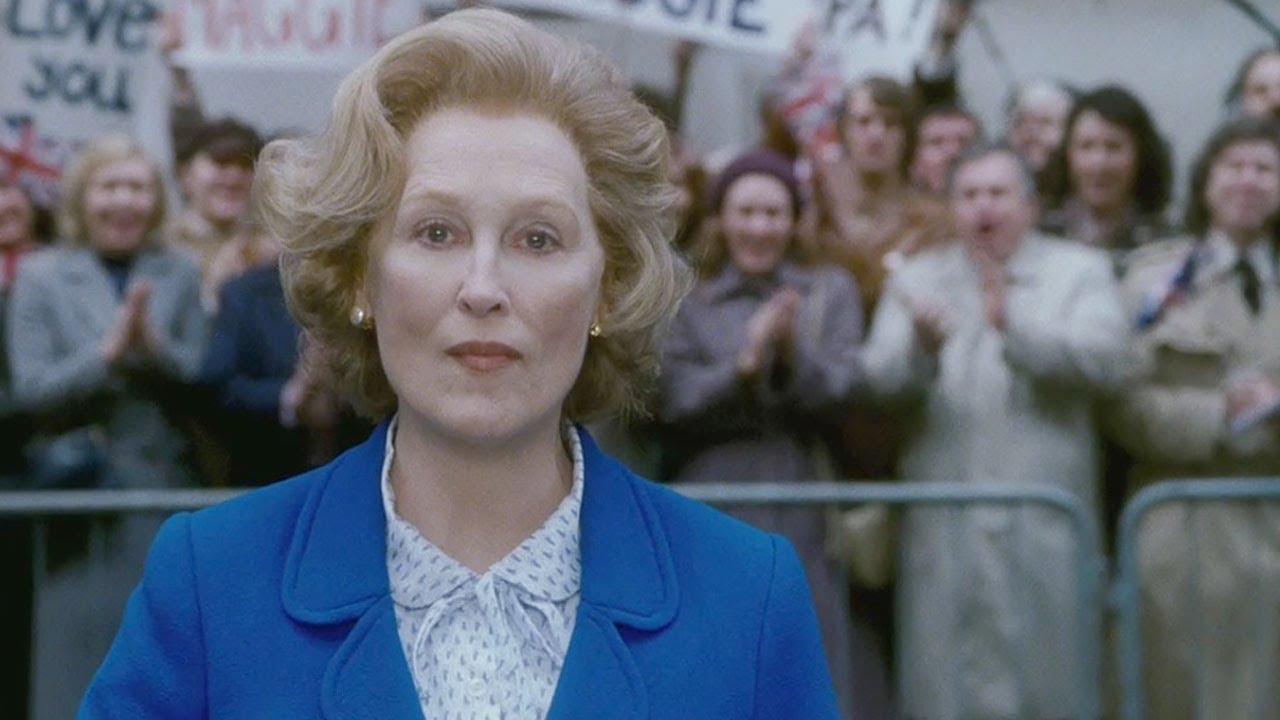
This fascination with silver screen simulacra, not only among audiences but the actors who are voting for their peers at the Oscars, has arguably come at the expense of some masterful incarnations of fictional characters. Perhaps the most egregious example came only last year. Timothée Chalamet was unforgettable in Call Me By Your Name, totally present and in a state of creative symbiosis with his co-star that most actors can only dream of, turning Elio Perlman from a character in a relatively little known 2007 novel into a romantic cinematic figure for the ages.
His performance and the movie itself will be dissected by film theorists and will influence future filmmakers for decades to come, and yet it was Gary Oldman’s assured, professional turn as Winston Churchill in Darkest Hour that won out at the 90th Academy Awards. This can’t be written off as a consequence of one nominee being a newcomer, while the other was an esteemed veteran – remember, another acting titan, Daniel Day-Lewis, was also nominated for the prize but beaten to it. Tellingly, Day-Lewis had given – for me – the best performance of his career too, playing the, yes, fictional character Reynolds Woodcock in Paul Thomas Anderson’s scintillating Phantom Thread.
The Independent on...
The Revenant
You cannot help but detect a certain megalomania on behalf of the director – a desire to push every scene to the absolute limit and to reach new peaks of spectacle.
The Revenant isn’t a smooth ride at all, but it is a film on the very grandest scale – a frostbitten epic that cannot help but provoke a sense of awe through its visual daring and sheer demented scale. Geoffrey Macnab
Again, it would be wrong to overstate the importance of awards – both Day-Lewis’s and Chalamet’s performances will be cherished regardless – but the Oscars do have a sizeable impact on the way film history is sculpted. When it comes to career reviews or obituaries, this trend will no doubt lead to actors being labelled as “best known for…” roles they weren’t actually best known for, or at least weren’t best loved for.
Putting audience and industry fervour to one side, would the actors themselves consider their based-on-a-true-story roles to be their finest? Were they not somewhat creatively limited given that the manifestation of the character was not purely at the discretion of themselves and their director.
I think you always have the ability for experimentation, even if it’s a very well known character, except perhaps with the more classical moments of their lives
“I’ve had that experience,” Matthew McConaughey previously told The Independent, “where it was a biography and I felt such a responsibility to emulate exactly who that character was that maybe I didn’t feel the wings – I didn’t feel like I ever took flight.
“I may have done a very responsible performance, I may have connected all the dots and been historically accurate, but did the spirit of the man take flight? That would be debatable.”
This responsibility can be a burden then; but equally, who could resist turning down the chance to tackle a historical heavyweight? Should Natalie Portman have said “no” to playing Jackie Kennedy (Jackie)? Jamie Foxx to Ray Charles (Ray – those eponyms again!)? Meryl Streep to Margaret Thatcher (The Iron Lady)?
It is the dramatic heft and era-defining status of these characters that similarly entice the directors to them. Fond though you may be of that original concept script you’ve had on the back burner for too long, couldn’t you put it off a little longer in order to realise, possibly, the definitive cinematic depiction of a human being who changed the world? There is a big-budget barrier to entry with biopics, and as soon as a filmmaker attains the sway with a studio necessary to breach it, it’s usually not long before they do.
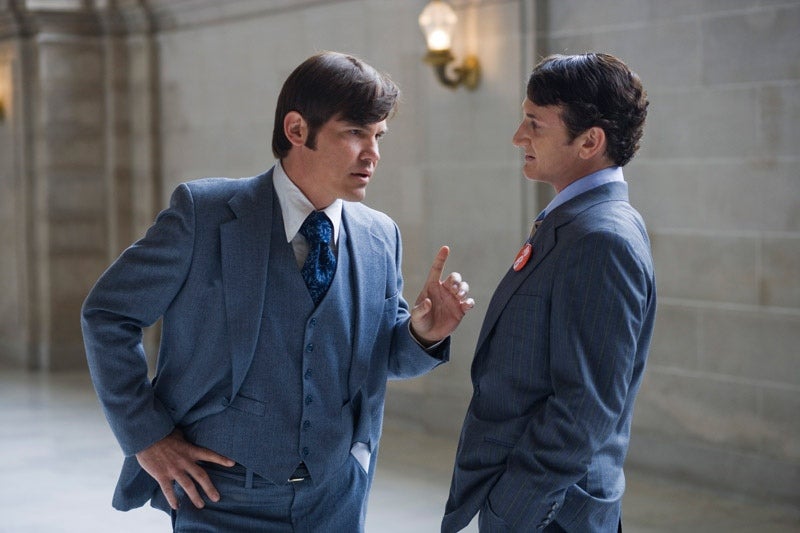
Take Damien Chazelle, for instance, who broke through with the blistering $3m (£2.25m) indie drummer movie Whiplash, wooed Hollywood with his effervescent musical love letter to it – La La Land – and has now made a sharp pivot away from music for First Man, a Neil Armstrong biopic and his first feature film he hasn’t penned himself. The space epic will doubtless be a spectacle and a success in his very capable hands, but it remains to be seen whether it will have the personality of those earlier films, which clearly had a lot of his own psyche baked into them.
Van Sant acknowledges that he feels an obligation to “responsibly portray [historical figures]. I try not to take extreme liberties because they are documented real people, and there are many things about the real person that I am trying to examine, so I don’t really need to wander outside of what is documented and perceived as real.
“The interpretation always runs into the problem of other people’s objectivity though,” he tells me, “people who also lived the story. And details can be a little hard to be precise about. Our pitch [for Milk] often was about the “greatest hits” of Harvey’s actions, so by the time we made our film most of the stories had been ground into truth. Whether we were correct or not about Harvey’s history, it had been accepted more or less as fact by previous books and films.”
Though these issues can be tricky to navigate, Van Sant doesn’t see the process of putting a well known person on the big screen as somehow limiting or linear. “I think you always have the ability for experimentation, even if it’s a very well known character. Except perhaps with the more classical moments of their lives – which you don’t really need to experiment with – although there will be small differences in the way the actor plays them.”
Real stories like those in ‘Spotlight’ or ‘12 Years a Slave’ make invented ones seem at best superfluous, at worst flippant
Nor does Van Sant remember his historical films as any more or less enjoyable to make than his others. “At the time you do a film, whichever kind of film it is, everything has become so imperative at that moment that – enjoyment wise – you can’t tell the difference between one film and another.”
In analysing biographical and historical films’ dominant position in the Hollywood landscape, the fact that they are often “important” movies can’t be overlooked. The Important Movie, the kind we’re told that “everyone should see”, gets a head start over its rivals because of its cultural or political significance, in front of or behind the camera. It isn’t exclusive to films based on true stories of course, and many entirely fictional films have benefited from being “important” of late, but the historical kind invariably sneaks extra gravitas into the theatre due to its subject. How can a work of fiction, however masterful, be prioritised for applause over the uncovering of mass molestation of little boys in the Catholic church (2015 Best Picture winner, Spotlight), or a searing account of the national shame of American slavery (2013 Best Picture winner, 12 Years a Slave)? Real stories like these make invented ones seem at best superfluous, at worst flippant.
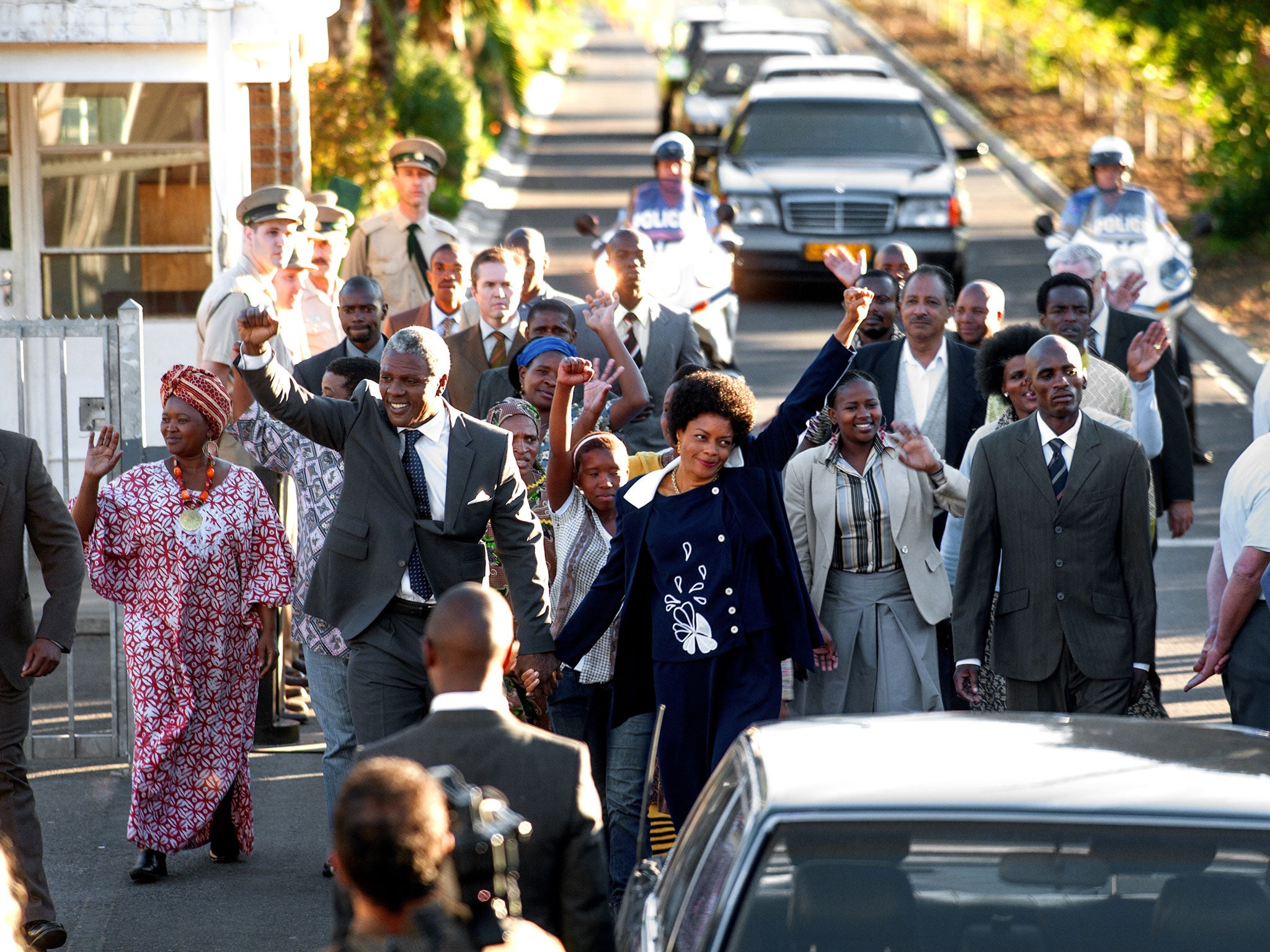
None of this is to say that there have not been some exceptional modern biographical or historical pictures. The Aviator (2005) is a good counter-argument to the idea of portrayal as creative limitation; DiCaprio having certainly – to paraphrase McConaughey – “taken flight” in the role of Howard Hughes. Then there are The Social Network (2010) and The Big Short (2015), which took seemingly dull or byzantine subjects and skilfully made them far more entertaining than they had any right to be. Note, though, that none of these films collected Best Picture in their respective years, none of them perhaps possessing a sufficient message or sense of periodisation.
Ultimately, how you weigh fictional stories against non-fictional ones will come down to why you go to the cinema. Is it to be entertained? Educated? To feel understood? To confront? To escape? To seize life or get a break from it?
Film critic Owen Gleiberman still has the best description of the appeal of watching a film that I’ve heard: “A way to hide from the world and spy on it at the same time.” This voyeurism would seem to cover both the camps discussed here: the biopic makes us privy to conversations we weren’t there to witness; the fictional film to the conversations that never happened.
For me, the cinema is where I go to get away from humans while learning about them – not, for the most part, specific ones who lived, but about the multitude that are in all of us: the beautiful and the grisly; the magnificent and the unmagnificent.
Join our commenting forum
Join thought-provoking conversations, follow other Independent readers and see their replies
Comments
Bookmark popover
Removed from bookmarks